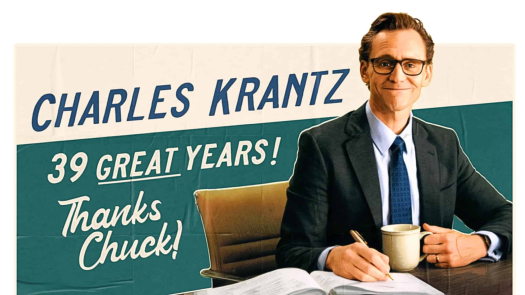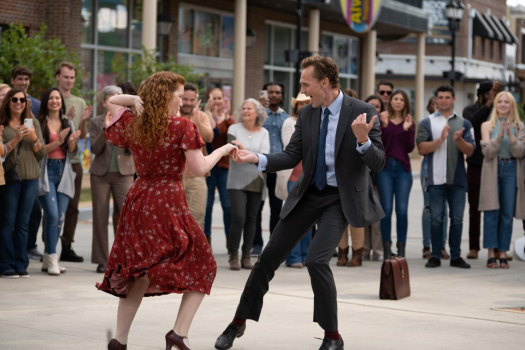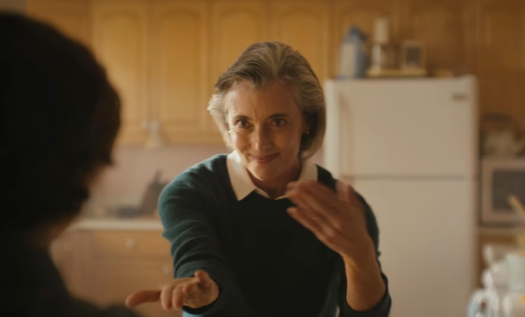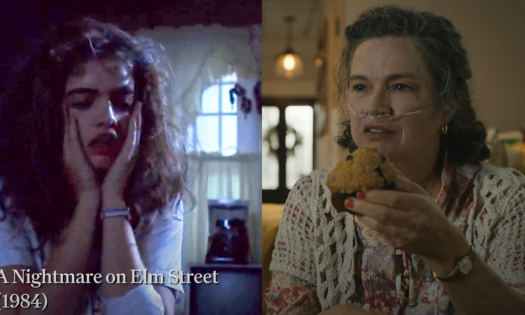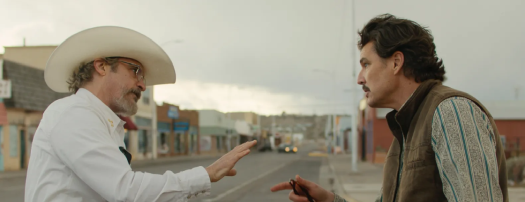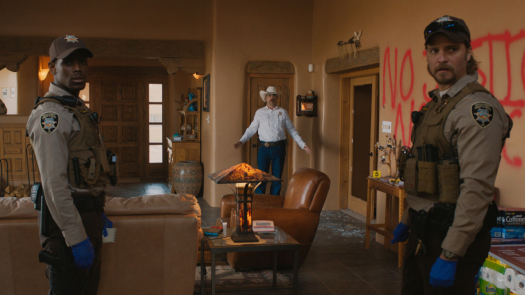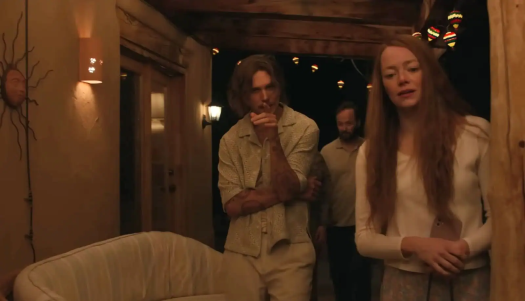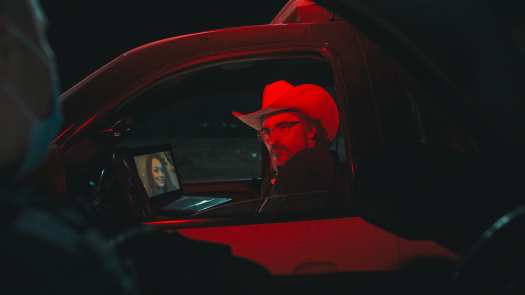A funny thing happened on the way to the movie thread. In the last three weeks, we saw five films. All of them were new releases. All but one were good. Two were legitimately great. It got me thinking about how, over recent years, I’ve seen fewer and fewer of the top 40 films. If I can find the time, I’ll make a chart and post about the progression.
I thought about it this fortnight-and-a-half because I found myself wondering if the trend could be changing.
Then I look at the top 20 and realize, no, I’ve only seen three of them. It just seems like I’ve seen more because I’ve seen a few more aggressively marketed recently releases.
The five films we hit:
Together, a body horror film on that most horrific of topics: Marriage. Tight, short, sweet, with a light story that’s fraught with potential symbolism, so people can write think-pieces on Zoomer relationships. Body horror, though, so definitely not for everyone.
Shari and Lamb Chop, a documentary about Phyllis Naomi Hurwitz, better known as Shari Lewis. This is the puppet version of Together, and I’m only slightly kidding, as we see a bit into the astounding work ethic of a woman raised in the vaudeville tradition. If you’re an older 29-year-old, you might remember her from inventing children’s television in the ’50s, where she did five or more hours of live TV every day. But if you’re a younger 29-year-old, and you remember her from the (very slightly) saucy Lamb Chop years of being on game shows, and you might have wondered what the big deal was. 1990s kids will probably remember her PBS shows. She was so good at what she did, she made it look easy. Anyway, great documentary. The Boy (who was reticent to go see it) came out raving.
The Naked Gun. Surely this can’t be any good. It is, and don’t use that 45-year-old joke. Liam & Pamela have a blast on this excellently executed update. I can, and probably will, write a whole thing on the good choices made. (For example, updating the spoof from a ’70s police show to a 21st century action flick.) It’s not that all the jokes land. Few, if any, comedies manage that. It’s that if you don’t like a joke, the next one’s coming along in five seconds. Running gags, without relying solely on running gags. Pop culture references but not only pop culture references. The ZAZ formula died in the hands of guys making movies built solely on references to better movies, and that’s very light here. A good time, can’t complain. Still, doesn’t look like it’s going to make a profit.
Fixed. This Netflix movie from Genndy Tartakovsky (“Dexter’s Laboratory”, “Samurai Jack”, “Clone Wars”, and the Hotel Transylvania series) is genuinely awful but I couldn’t exactly hate it. It’s adult animation about a dog that humps everything and lives in terror of being fixed. It’s entirely scatological, but this brings very little joy. I mean, I happily ate popcorn through The Substance, the Evil Dead series and Schindler’s List but this movie is wall-to-wall poop and pee and testicles. Way more misses than hits, with a completely incoherent worldview—I mean, obviously it’s a comedy and it doesn’t have to make sense, but it has to have enough grounding for the audience to grasp what they’re supposed to care about. These dogs aren’t dogs but they’re dogs for joke purposes. It’s not good. I didn’t hate it, but I wouldn’t blame you if you did.
Now, on to the main event.
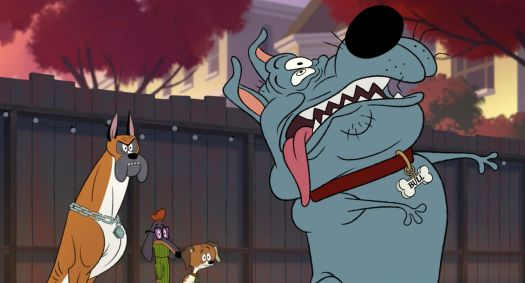
Apart from the staggering number of dog anuses, the movie looks pretty good.
Weapons
One day, a young 3rd grade schoolteacher goes to her class to find that none of the children in her class have come to school that day, except for one. All the other classes and children are there. Just hers are missing. Because at 2:17AM the previous night, they all ran out of their houses into the woods and were never seen again.
Everyone of course assumes the schoolteacher has done something, and we’re off to the races in Weapons, a mysterious story that actually isn’t mysterious at all, much like Zach Cregger’s previous work Barbarian.
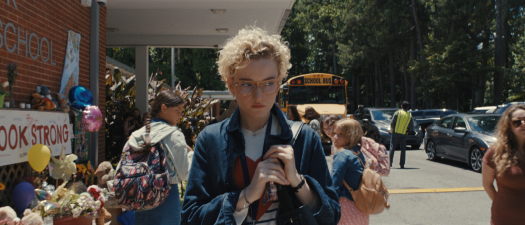
I don’t know WHAT they imagine she’s done with 17 children, but she’s a wreck in a lot of ways which makes her an appealing target.
If you remember Barbarian, you may recall that it started out with a mysterious premise, as a woman discovers hidden depths in the awfulness of her judgment when renting an AirBnB. By the end, it’s very clearly a well-known horror form, and while there are twists, Cregger emphases character development and twists over plot twists.
This is really refreshing, as a longstanding trend in indie films that has seeped heavily into horror in the past ten years is: “If we don’t ever explain anything or resolve anything you can’t identify what you’re watching enough to describe how derivative it is.”
Derivative is not bad, people. Everything is going to be derivative. If it’s in English, it’s going to be derivative of the ideas and themes English uses to express things. If it’s silent, it’s going to be derivative of silent movies. If it’s entirely original, it’s also completely incomprehensible.
You can totally shyamalan yourself into making nonsensical trash trying to fool people.
What Creggers does, again, in Weapons, is give us a story from multiple perspectives: The schoolteacher, the cop, the junkie, the obsessed parent, and the kid, and as we see each part of the story from their eyes, we get a little more clarity. In the end, we have a story that “makes sense”. It’s not a realistic story, or even sci-fi, it’s straight up supernatural horror, and yet it still “makes sense”.
This is good. It means you don’t feel ripped off or manipulated at the end.
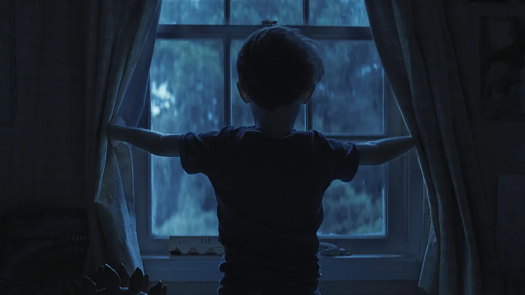
I haven’t seen anyone else mention that this is the plot of season 1, episode 5 of “Mystery, Inc.”, “The Song of Mystery”. Jinkies!
I’m harping on the story because it seems like Hollywood’s forgotten how to tell them lately, but the whole movie is top-notch.
A terrific cast, with Julia Garner (the Silver Surfer in the new F4 movie, and Martha Marcy May Marlene), Josh Brolin, Justin Long, Amy Madigan, and Cary Christopher as the only boy who showed up for 3rd grade.
Well shot. One of the (increasing number) of movies that aren’t color-coded. Like Together, a lot of the shots are downright beautiful, someone having figured out that you don’t need to paint everything in gray-blue for people to get scares.
Zach Cregger along with Ryan and Hays Holladay are credited with the composing of the music. The use of music is spare, unless it slipped by me. I remember thinking in the film that it was very strategic, with the action doing most of the heavy lifting and the music sort of sneaking in under the awareness level at just the right time.
Would I recommend it? To a horror fan, absolutely. It has a few very violent scenes, like Barbarian, which might be off-putting to some.
Also, I loved the climax and denouement. It could come off as black comedy (because it’s blackly comic), but when dealing with a “children in peril” film, one must tread lightly, and of all the directions Weapons might have gone, all the conclusions the storyline might have arrived at, this was not bleak or nihilistic or depressing, even if it was somewhat sad.
A solid hit that’s already made it’s money back and is on track to finish in the top 20 this year.
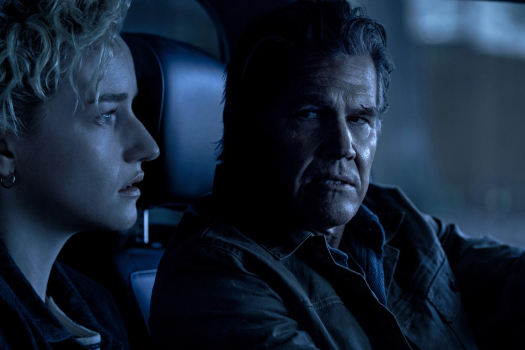
Parent/Teacher conferences get intense in “Weapons”.

